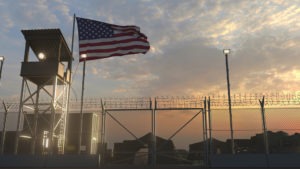Camp Lejeune Lawsuit July 2023 Update

There have been many developments regarding the Camp Lejeune case that was filed against the government. This enormous case is progressing, from procedural to substantive issues, slowly but definitely.
As of July 12, 2023, there are over “70,000.00 administrative claims,” and over 1,000 lawsuits filed in federal court. Administrative claims are claims that are not heard or decided by a court. Unlike lawsuits, there are no courts, judges, juries, or other judicial-based systems and positions. Rather, the administrative claim is very process-based and requires that you meet certain marks before you can be compensated.
Lawsuits, on the other hand, do not require claims to meet such stringent requirements. A lawsuit is much more flexible and allows for much greater compensation, depending on the final budget set for administrative claims. Further, unlike administrative claims, lawsuits can generally be brought by heirs/the estate of the decedent. If you are the heir/estate of a Camp Lejeune victim, there is no administrative route to take, lawsuits are the only option.
Impacts of the PACT Act
Usually, the government is immune from cases such as Camp Lejeune, but that changed when the government enacted the “Promise to Address Comprehensive Toxics or PACT Act.” Prior to the PACT Act, victims of Camp Lejeune’s water contamination could not legally pursue a claim in court or otherwise against the government.
The PACT Act set up an administrative process in place that allows victims to seek compensation under the PACT Act. However, the Act requires that you submit the following pieces of evidence to support your claim:
- Military records showing you served at Camp Lejeune or MCAS New River for at least 30 days total between August 1, 1953, and December 31, 1987.
- Medical records that show you have one or more of the eight Camp Lejeune presumptive conditions.
Military Records
The first requirement is straightforward, and the VA offers a thorough explanation of its requirements. Many of the listed conditions are cancer-related illnesses. Despite the seemingly proactive steps from the government, there was not a comprehensive plan in place nor was there funding in place for this enormous task. As a result, the government is under-prepared for this litigation which has increased the amount of time these cases will take.
Medical Records
In addition to a slow government process, there are also around 27 different medical claims related to the Camp Lejeune contamination case. These claims include:
- Parkinson’s
- Lung Cancer
- Kidney Cancer
- Leukemia
These medical conditions have been conclusively linked to veterans and their families who were exposed to the drinking water at Camp Lejeune and the MCAS New River between August 1953 and December 1987.
For a free legal consultation, call (725) 900-9000
Camp Lejeune Lawsuit Progress
As for the lawsuits, there has been some progress. On June 12, 2023, over 120 plaintiffs challenged the government’s defenses, claiming that they were non-specific and minimal. Some of these defenses included the claim that plaintiffs failed to state that other things such as a dry cleaner could have caused contamination resulting in medical issues.
On June 26, a U.S. District Court Judge upheld the Navy’s right to maintain the defenses it filed in answer to 122 water contamination lawsuits. The ruling was due to the seeming vagueness of the plaintiff’s complaints. As such, although the government’s defenses were upheld, it does not necessarily mean that it will stand trial.
This challenge and ruling were more procedural than substantive. The government had a large array of defenses at its disposal, and the lawyers for the Camp Lejeune victims were attempting to dwindle the arsenal down. However, since it is very early stages both sides suffer from vagueness, so the District Court Judge had no choice but to uphold the government’s defenses.
Apart from these preliminary movements, the only major update was a status conference that took place in April of this year. The conference included discussions on the possible consolidation of cases/class-lawsuit, attorney decorum, discovery procedures, and much more.
How Your Location Affects the Legal Process
Due to the centralized location of the Camp, all of the lawsuits are being heard in the Eastern District of North Carolina. However, due to the transient nature of the victims, many of the claimants live in other states. This means that lawyers who do not regularly practice in North Carolina have to adapt to the rules and procedures of the North Carolina courts, hence the status conference.
The state conference was a refresher on the status of the case, the procedures of the North Carolina courts, and a discussion on the future of the mass litigation. This was especially pertinent given that many lawyers were reprimanded for their grossly excessive marketing tactics.
While some blame can be placed on the advertising firms hired to market this case and find victims, the courts and many Camp Lejeune victims were unsatisfied with the way it was carried out. As of July of 2023, however, it seems that things are starting to settle down.
Click to contact our personal injury lawyers today
We Will Keep Fighting for You
We encourage you to stay strong, stay resilient, and be patient as we work to provide you with the compensation you and your loved ones deserve. The government wronged their service men and women and their families by knowingly serving contaminated drinking water. It is only right that the victims of Camp Lejeune are made whole by this preventable tragedy.
No obligation consultations are always free.
Let Us Help You! Call Now: (725) 900-9000

